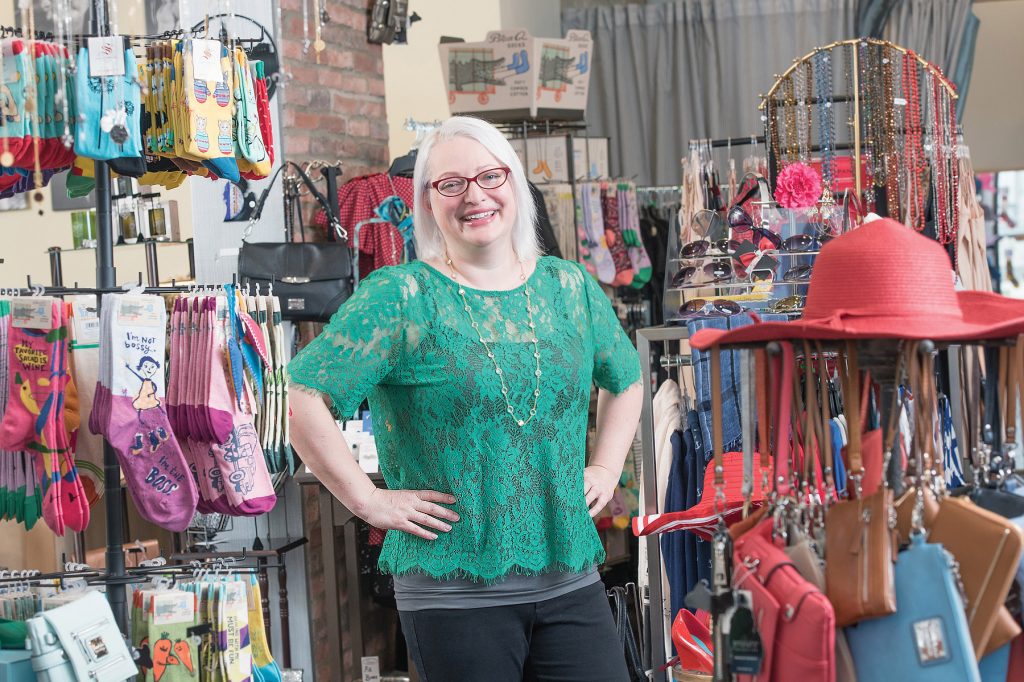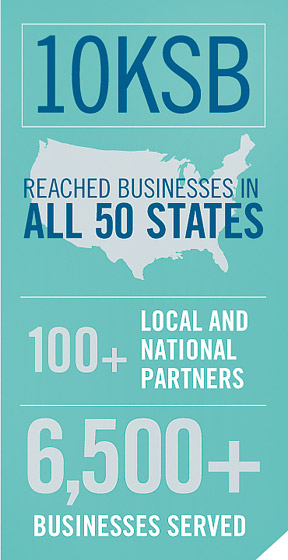
Summer Schriner, owner of Grace Boutique in Lansing’s Old Town, recalls feeling insecure as she walked into her first session of the Goldman Sachs 10,000 Small Businesses program a year ago.
She was one of 23 participants to nab a $50,000 fellowship for the prestigious program – a mini MBA of sorts that will hold more four-month sessions in Michigan for at least two more years. The program, called 10ksb for short, targets promising business owners who are ready to leap to the next level.
Schriner worried she’d be the only participant who didn’t know how to get a grasp on her inventory or deal with her financials (“I’d just hand them to my accountant”).
“A lot of us have the impostor syndrome,” Schriner said – a fear that you’ll be discovered as a fraud.
But Schriner, who has grown a loyal customer base for her eclectic mix of purses, hats, dresses and men’s ties at her boutique, discovered that her 10ksb peers had similar fears. It was a reassuring discovery.
 In November, she completed the program and has since purchased a point-of-sale system and dealt with profit/loss statements – among many other skills learned at 10ksb. Soon she plans to launch an ecommerce section on her site (oldtowngrace.com), and projects to almost double her revenues within a year.
In November, she completed the program and has since purchased a point-of-sale system and dealt with profit/loss statements – among many other skills learned at 10ksb. Soon she plans to launch an ecommerce section on her site (oldtowngrace.com), and projects to almost double her revenues within a year.
The program, with sites in 17 cities across the nation, is described by the New York Times as “an intensive educational experience.” It’s funded by Goldman Sachs and is hosted by a higher ed institution – in Detroit’s case, Wayne State University, with Macomb and Oakland community colleges as partners. In addition to coursework, it offers a loan program administered through nonprofit community lenders like Invest Detroit. It teaches business and management strategies and provides technical assistance, networking opportunities and access to capital.
“There’s a lot of self-actualization that takes place,” says Camille Walker Banks, executive director of the Detroit program. “We help you figure out – what kind of a leader are you? What kind of team do you need?”
While 10ksb caters mostly to growing Detroit businesses, participants have come from Grand Rapids to Gladwin, Toledo to Kalamazoo. Participants must be an owner or co-owner of a business that has been in operation for at least two years, with at least two employees and revenues of more than $100,000.
The group ranges from manufacturers to professional services to IT and retailers. Each sector has its own needs. Retailers, for example, tend to have a tough time gauging whether they’re really making a profit. They often don’t have standards and procedures, so new hires don’t know what is expected. And many store owners are afraid of making the leap to e-commerce.
“That’s why the mix in the program works,” Walker Banks says. “There may be an IT person who can help that retailer figure it out. We often say that the answers aren’t always with the facilitators – they’re often with your peers.”
Each program in the U.S. is unique. For example, the program in New Orleans started shortly after Hurricane Katrina, so retailer needs there were very different from the recession-battered Michigan participants, especially manufacturers.
As a result, Michigan participants often lack confidence. Especially in the early years of the program, “You could see it,” Walker Banks said. “We had to focus on rebuilding that confidence. We help them realize that in this program you are surrounded by other entrepreneurs who all have their own skills and weaknesses, but this is a safe and open environment where you can put it all out there.”
Apparently it’s working. Walker Banks notes that the Detroit-based program is No. 1 out of the 17 Goldman Sachs sites. It has the highest percentage of business owners who increased revenues (76 percent) and increased jobs (52 percent) within six months of graduating.
Are you interested in applying for the Goldman Sachs 10,000 Small Businesses program? You can find out more online at http://10ksbdetroit.com/.
